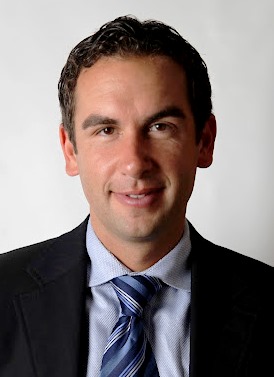Steven Fulop
Running for:
Governor
Incumbent
Challenger
- Steve Fulop Meet n Greet, Tindall Road Brewing Co, Bordentown
- Meet Democrat Primary Gubernatorial Candidate Steve Fulop
- 04/14/25 - 6:30pm
- Corinne's Place, 1254 Haddon Ave, Camden NJ, 08103
- RSVP: Campaign Site
- Steve Fulop Meet n Greet, Hamilton Township Public Library
- Meet Democrat Primary Gubernatorial Candidate Steve Fulop
- 04/15/25 - 6:30pm
- Hamilton Township Public Library, 1 Justice Samuel Alito Jr, Way
- RSVP: Campaign Site
- Steve Fulop Meet n Greet, Corinne's Place, Camden
- Meet Democrat Primary Gubernatorial Candidate Steve Fulop/li>
- 04/19/25 - 5:00pm
- Corinne's Place, 1254 Haddon Ave, Camden NJ, 08103
- RSVP: Campaign Site
Relevant Bio and Experience
Military and Early Life:
- Grew up in Edison, NJ, the son of Romanian immigrants and grandson of Holocaust survivors.
- Witnessed the 9/11 attacks while working at Goldman Sachs and soon enlisted in the U.S. Marine Corps.
- Deployed to Iraq in 2003 with the 6th Engineer Support Battalion; completed service with the rank of Corporal.
Education and Private Sector Experience:
- Graduated from Binghamton University; studied abroad at Oxford University.
- Earned a Master of Business Administration from NYU Stern and a Master of Public Administration from Columbia SIPA.
- Worked in finance at Goldman Sachs and Sanford C. Bernstein & Co.
Political Career:
- Elected to the Jersey City Council in 2005; served for 8 years.
- Elected Mayor of Jersey City in 2013 and continues to serve in that role.
- Led Jersey City to become the first city in New Jersey to mandate paid sick leave.
- Delivered record economic development without raising taxes.
- Implemented re-entry programs for former prisoners and small business protections.
- Led sweeping public safety reform, making the JCPD a model for diversity nationwide.
- Made Jersey City one of the greenest and healthiest cities in the nation.
Additional Recognition:
- Selected as a Young Global Leader by the World Economic Forum.
- Named a Rodel Fellow by the Aspen Institute and a New Deal Leader.
- Under his leadership, Jersey City received awards and recognitions from Bloomberg Philanthropies, the Robert Wood Johnson Foundation, and the Human Rights Campaign, among others.
Policy Summaries
Public Safety
Steven Fulop brings real-world executive experience to public safety, having led Jersey City through active shooter events, the COVID-19 pandemic, and a period of national unrest around policing. As mayor, he implemented community-focused reforms that made Jersey City a national model for police diversity and accountability. His administration reduced homicides and shootings to multi-year lows while expanding alternatives to incarceration, like community court, drug treatment, and mental health programs. He also created New Jersey’s largest reentry initiative and pioneered civilian oversight, body camera mandates, and de-escalation training.As Governor, Fulop plans to replicate these successes statewide. He’ll crack down on repeat offenders with targeted prosecution, reform bail to prevent premature releases, and restore cost-of-living increases for retired public workers. His agenda includes eliminating public defender fees, expanding restorative justice, closing youth prisons, and mandating active shooter readiness and Ceasefire Units in high-crime areas. Fulop also supports raising the firearm purchase age to 21, enforcing tougher gun laws, and increasing accountability for law enforcement leadership—all backed by technology and policy reforms aimed at making communities safer and more just.
Transportation
Steven Fulop’s transportation plan is rooted in hands-on experience modernizing Jersey City’s transit systems and a vision for restoring New Jersey’s status as a national leader in mobility. As mayor, he launched the region’s first public micro-transit program, expanded bike infrastructure, eliminated traffic deaths on city-owned streets through Vision Zero, and invested in ferry and greenway access. He also restructured commuter garage fees to benefit transit users and prioritized equity by reaching underserved communities with affordable rideshare services. These local successes shape his statewide approach.As Governor, Fulop would push for dedicated NJ TRANSIT funding, expand light rail, modernize PATH with a goal of transferring oversight to NJ TRANSIT, and support smart congestion pricing to fund transit—not just NYC infrastructure. His plan includes closing transit deserts through state-run micro-transit, fully funding the Hudson-Essex Greenway, modernizing stations, protecting transit workers, and demanding more accountability from the Port Authority. He also proposes sweeping changes to the MVC to improve service and efficiency. Fulop’s vision centers on equity, sustainability, modernization, and statewide investment that meets New Jersey’s dense, evolving needs.
Housing
Steven Fulop recognizes New Jersey’s affordable housing crisis as one of the greatest threats to economic stability, health, and equity across the state. As mayor of Jersey City, he led efforts that produced thousands of affordable and market-rate units, including the transformative Bayfront project with 35% affordability, and passed Right to Counsel protections for tenants. He also pioneered zoning innovations like the Affordable Housing Overlay Zone (AHOZ) and created new public housing despite national restrictions. Fulop understands that stable housing is the foundation for upward mobility, health, and neighborhood safety, and he plans to bring this integrated approach to the state level.As Governor, Fulop would double the state’s affordable housing production and implement statewide Right to Counsel, permanent deed restrictions on affordability, and equitable transit-oriented development. He would reform tax credit systems, incentivize accessory dwelling units (ADUs), and streamline approval timelines to fast-track construction. His plan prioritizes racial equity, stronger tenant protections, local empowerment, and better use of state trust funds. With policies that address both housing supply and systemic barriers, Fulop proposes a comprehensive solution rooted in experience and backed by a proven track record.
Health and Human Services
Steven Fulop brings a hands-on approach to health and human services, with a track record of proactive leadership in Jersey City. As mayor, he expanded access to healthy food, housing for the homeless, women's health services, and senior care—often building unique partnerships and creating new city divisions to meet specific needs. His administration led New Jersey in decriminalizing marijuana, reducing veteran homelessness, and establishing the state’s first municipal prisoner re-entry program. Fulop also implemented domestic violence intervention programs, expanded early childhood resources, and made Jersey City a national model for vertical farming and food equity.As Governor, Fulop plans to expand paid family leave, streamline subsidies for new parents, reform child care funding, and eliminate barriers to early intervention services. His agenda prioritizes mental health access, senior care reform, medical debt relief, and integration of public health systems. He proposes banning zip-code-based health insurance premiums, expanding access to abortion services, and reviewing hospital consolidation to protect patients over profits. With a focus on compassion, efficiency, and equity, Fulop aims to overhaul New Jersey’s fragmented health systems and make essential services more accessible for all residents.
Education
Steven Fulop has a strong record of supporting education in Jersey City, despite limited municipal control over schools. He facilitated the construction of new school facilities through creative partnerships, expanded access to vocational training and inclusive programs for special needs students, and absorbed millions in city costs to ease the school budget burden. His administration made record investments in libraries, eliminated overdue fees, and supported both public and charter school expansion to give families real options. Fulop has also backed youth development programs, summer camps, and special education inclusion efforts as part of a holistic strategy to support children.As Governor, Fulop plans to modernize New Jersey’s school funding formula, invest in universal Pre-K, confront school segregation, and expand mental health support for students. He would cap tuition increases at public universities, overhaul the college savings system, and realign state aid to better support community colleges and low-income students. His administration would also reform special education funding, expand recovery high schools, support shared services and district consolidation, and push for infrastructure upgrades. Fulop’s education vision emphasizes transparency, equity, affordability, and preparing students for diverse pathways beyond high school.
Government Reform
Steven Fulop has built a record in Jersey City centered on transparency, efficiency, and reducing political corruption. As mayor, he enacted campaign finance reform, ended tax abatements for market-rate projects, and implemented participatory budgeting to give residents a voice in how funds are spent. He opposed the controversial Election Transparency Act, has consistently advocated for abolishing the county line ballot design, and championed ranked choice voting. Under his leadership, Jersey City consolidated overlapping departments, expanded shared services with schools and neighboring towns, and processed over 5,000 OPRA requests annually with minimal complaints—showcasing a commitment to open government.As governor, Fulop plans sweeping reforms at the state level: ending the county line, modernizing financial disclosures, banning zip-code-based health premiums, restoring pay-to-play restrictions, and establishing robust conflict-of-interest rules for party chairs. He would expand voter access with same-day registration and standardized ballot initiatives, increase legislative transparency, and push for term limits. Fulop’s administration would streamline public records processes, restructure how elections are managed across counties, and demand a more accountable budget process in Trenton. His approach signals a deep commitment to restoring public trust through practical, enforceable reforms.
Environment
As Mayor of Jersey City, Steven Fulop led one of the most environmentally progressive city administrations in the country—investing heavily in clean transportation, tree planting, green infrastructure, and electric vehicle charging stations. His city pioneered New Jersey’s first municipal microgrid, banned plastic bags ahead of the state, launched the largest municipal microtransit program in the U.S., and built over 25 miles of protected bike lanes. Fulop also developed Jersey City’s Climate Action Plan with aggressive 2030 benchmarks and implemented policies such as stormwater ordinances, green building incentives, and a $70 million investment in park and open space renovations.As Governor, Fulop pledges to act urgently on climate and sustainability—eschewing distant 2050 goals for near-term action. His plan includes a moratorium on warehouse development until statewide environmental guidelines are established, a major upgrade to the state’s electric vehicle infrastructure, and a 7% statewide energy efficiency target (up from 2%). He would fully support offshore wind, restore Department of Environmental Protection staffing to pre-Christie levels, end the bear hunt, and protect Liberty State Park from privatization. Fulop’s administration would also prioritize clean air and water enforcement, expand state parkland, and strengthen environmental justice protections by holding polluters accountable and ensuring green infrastructure reaches underserved communities.
Affordability
As Mayor of Jersey City, Steven Fulop stabilized taxes, phased out excessive developer tax abatements, and implemented strong financial management systems, leading to multiple years of flat or reduced municipal tax rates. He introduced participatory budgeting, green financing, and outcome-based budgeting, helping residents directly influence spending while maintaining fiscal discipline. Fulop also created the Department of Finance, increased budget transparency, and launched a tax stabilization program praised by Moody’s. His administration avoided gimmicks, prioritized long-term planning, and invested in sustainable infrastructure while reducing reliance on unpredictable revenues.As Governor, Fulop plans to overhaul the state’s affordability approach by targeting regressive and overly complex tax relief programs. He proposes reforms to the Stay NJ property tax plan, advocates for circuit breaker-style tax credits tied to income, and supports targeted relief for renters and low-income seniors. Fulop also calls for stronger ethics laws to combat what he calls a “corruption tax,” municipal debt reform requiring voter referendums, and regional service consolidation to cut costs. He would introduce a graduated mansion tax, restructure income taxes for high earners, pursue unfunded mandate reform, and challenge New York’s “convenience of the employer” tax rule to protect New Jersey workers. His platform aims to reduce structural inefficiencies while expanding affordability across housing, services, and taxation.

